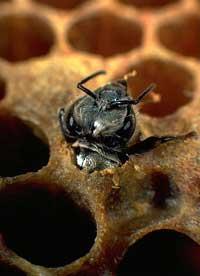Trying to understand human behavior

In modern societies the human being meets in large groups. He has developed complex organizational models in which collaboration is essential. Each one has been assigned a job in which all participate. But not only in modern societies, but also in ancient societies. They also had a food exchange organization and a cooperative hunt, among others.
In nature, the rest of animals have a much simpler distribution of work. They are organized in much smaller groups and do not depend on each other. Usually the members of the same family help, but not others. And it is that helping children makes sense: the gene of each one helps to pass from generation to generation. But, does it make sense to collaborate with individuals from other families?
We do not lie, there is a complex organization, like social insects. But their organization has a genetic basis, that is their main difference with respect to us. In the case of ants and bees, for example, each individual has genes that force him to be a worker, queen or soldier. Different genes are activated for each other, which limits their occupation.
In the case of human beings, however, cooperation is not a genetically oriented phenomenon. There is no gender in our genome that pushes us to cooperate and, however, we do. Why? Since this phenomenon has no genetic basis, the basic genetic laws of biology have not found a way to explain it and have had to address other scientific fields.
Experiments with human beings

It is clear that man is altruistic about his family, something that no one doubts. But why altruistic with others? Do you receive any kind of remuneration?
Some researchers from Zurich have made several experimental games to know the nature and why of this altruism. Unknown people, of different origins and cultures have been selected. They are joined by couples in a room and given a quantity of money. Yes, with the condition that both decide how to distribute the money. The first person must propose the exact distribution of the money and the second will indicate whether or not he agrees with such distribution. If you agree, the money will distribute it like this, as the first has said, and if you don't agree, you will be returned to the researcher, both of them without money.
In this essay they have seen that in 25% of the experiments the second person has opposed the distribution of money. This shows that they have not opted for their own interest. If so, they would accept in all cases the offer of the first one to receive the prize. However, 25%, faced with this injustice, think they would receive little money and prefer to give up money.
Altruistic punishment

According to these experiments, many men and women have shown a tendency to punish people who have not acted properly. Saying no to the offer costs a lot for those who refuse, but the hitman punishes the other because he has failed to comply with the norm of the society. As a result of this penalty, in the next experiments, the majority of those who have to cite have followed this rule.
In fact, this experiment mimics many situations of normal life. Unless the laws force it directly, the human being is often in similar situations: Acting honestly or cheating? According to the researchers, society itself obliges, in some way, to maintain an honest conduct, since it otherwise punishes it. The researchers have called him an altruistic penalty.
But experiments show that the cooperation of others is fundamental in making this altruistic behavior a reality. That is what generates balance. If the behavior of other people is not correct, none of them is honest. In addition, when two people come together and give them money, altruism is much less if they are assured that they will not see other people again and it is done anonymously. Because the human being, in addition to justice, is affected by concepts such as prestige. Somehow, you have to believe that acting honestly will report advantages in the future, it does not. They do not exist in the rest of animals.
Has anything to say about evolution?

Biologists know that all this has no genetic basis, that there is no gender that produces it. But does evolution itself influence? In other words, does altruism improve or ensure the survival of that society? Does it have an advantage over other societies? If so, natural selection would be favoring altruism.
Researchers believe so. In fact, parents have a long work of education and socialization. And would it make sense if that did not fructify later?
Scientists continue to investigate human altruism. It seems to be due to the evolutionary force of nature. However, there are still many unresolved questions, since in nature there is no other example.
Published in 7K.
Buletina
Bidali zure helbide elektronikoa eta jaso asteroko buletina zure sarrera-ontzian











